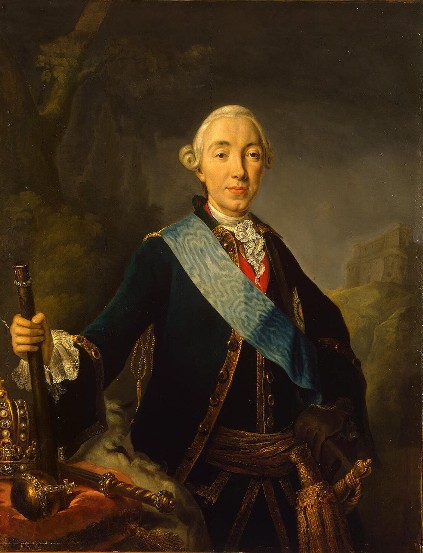Peter III
Peter III (Karl-Peter Ulrich; Russian: Petr Fedorovich), b 21 February 1728 in Kiel, Holstein-Gottorp (now in Germany), d 17 July 1762 in Ropsha, near Saint Petersburg. (Portrait: Peter III.) Russian emperor in 1761–2; grandson of Peter I and husband of Catherine II from 1745. Under the influence of his father, Duke Charles Frederick of Holstein-Gottorp, who had been a friend of the Orlyk family (see Pylyp Orlyk) and had defended Ukrainian causes at the imperial court, Peter III surrounded himself with Ukrainians, among them Andrii Hudovych (whom Peter appointed adjutant general and, it was rumored, planned to appoint hetman in place of Kyrylo Rozumovsky), Vasyl Khanenko, and S. Karnovych. After he succeeded his aunt, Elizabeth I, as emperor, Peter abolished the Secret Chancery and compulsory military service for the gentry and ordered the secularization of monastic properties. Being pro-Prussian, he ended the Seven Years' War and forged an alliance with Prussia in preparation for a new war with Denmark on behalf of Holstein. Peter's policies aroused opposition from his wife and other members of the imperial elite. In June 1762 Catherine staged a coup d'état, was recognized as empress by the imperial guard, senate, and Holy Synod, and had Peter arrested. After abdicating Peter was killed in a brawl by one of his captors.
[This article originally appeared in the Encyclopedia of Ukraine, vol. 3 (1993).]

.jpg)
